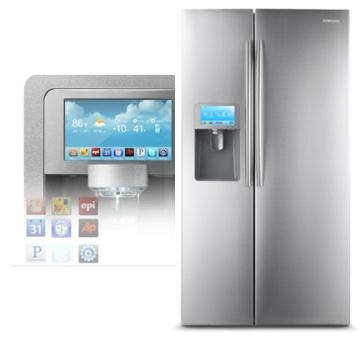
The Impact of the Internet-of-Things on CRM
An increasing number of devices are directly connected to the web. The Internet-Of-Things is no longer a theoretical concept but an actual reality. So what is the impact of this new reality on CRM?
Well, it is huge! Obviously, the impact on customer service is the most significant, but the fact that devices now can communicate directly with business applications like CRM systems also changes the ways of marketing and sales.
Let’s take a look at the impact of the Internet-Of-Tings on customer service processes first. Think about it: What if a device can not only autonomously detect a malfunction, but could notify the customer service department (or an engineer) about the defect. That might enable the service organization to get the device fixed before the user even knows something is wrong!
In IT Service Management this concept is not new. So called ‘network sniffers’ have been around for some twenty odd years, capable of automatically detecting broken routers, slow connections and loose cables. What is new with the Internet-Of-Things, is that not only devices that were already connected as components of a closed-loop network can directly interact with the customer service ticketing application, but that practically every device, or even every object, can autonomously interface with your organization. Parcels to be delivered, for example, can be tracked automatically to their physical location, so you can inform your customers pro-actively about delivery times or delays.
If connected, your refrigerator could automatically give a warning prior to the expiration date of your supplies, so you no longer have to throw away food. Light bulbs that – based on historic data – are likely to break after 5,000 hours in operation could send you (or a responsible maintenance officer) a message that they need to be replaced. More and more we will see that maintenance tasks can be carried out remotely as well, much like the computer software updates we are familiar with.
In short, we can say that the impact of the Internet-Of-Things on customer service is huge. Calls will no longer only be logged by humans, but also by things. Service then can be delivered automatically, often without any human involvement.
Less obvious, but definitely not less significant is the impact of The Internet-Of-Things on marketing and sales. To understand this impact, try to imagine the amounts of data that are being generated by the zillions of sensors in the connected devices. With the technology to process all this data real time, we all understand how Big Data Analysis can be used to influence customers. For instance: the rain sensors in the car of a customer might detect heavy rain. Automatically, a link to the nearest umbrella shop can be send to the on board screen and navigation system of the car. Or –more sophisticated– when comparing the location and routes of this person’s car over the past few days, with the regular travel pattern, you can conclude that they are on holiday. Combined with the rainy weather, the local tourist organization might send them information on museums and other rainy-day-activities, before they decide to leave the region heading for sunny weather…
Many people fear their privacy is at stake when Big Data Analysis is used for sales and marketing purposes. But consider this: If you purchase a product online, not only the supplier knows of your purchase. The delivery company will also be informed and – since you were not home at the time of their first delivery attempt – the pick-up point employee will also know what you bought. And what about the neighbors who will actually see the package being carried into your house? So, an online purchase isn’t actually very private at all, so then why not make it easier on yourself and allow the delivery company direct access to your calendar, so they know when you’re at home to accept the package? It will save you a trip to the pick-up point altogether.
 Previous Post
Previous Post Next Post
Next Post